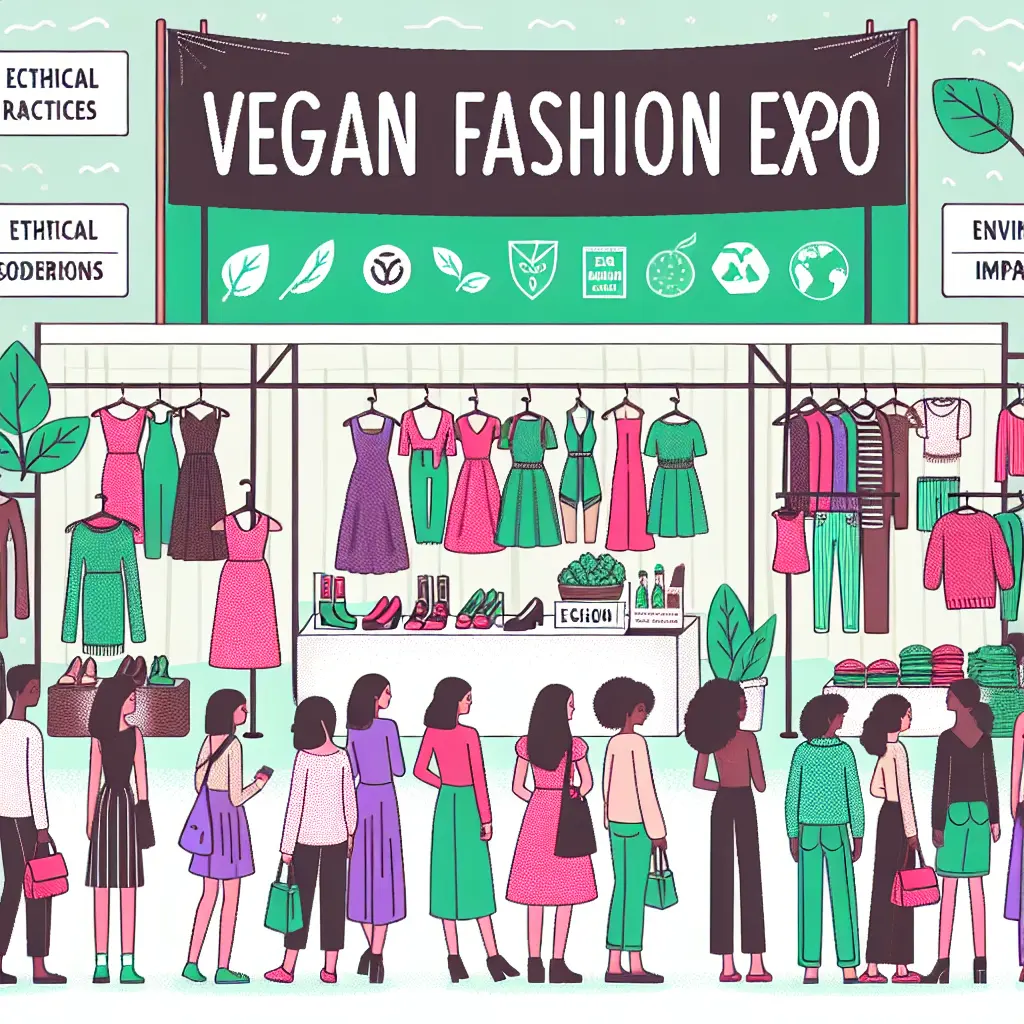
In recent years, the surge of interest in veganism has transcended the boundaries of diet, permeating the fashion industry with a dynamic wave of ethical considerations. This movement isn't just about food; it's about lifestyle choices that respect the environment and all its inhabitants. As veganism challenges traditional norms, such as those held by power athletes who defy stereotypes by maintaining peak physical condition on a plant-based regimen, it similarly revolutionizes the fashion world through sustainable and cruelty-free practices.
The burgeoning field of vegan fashion is defined by a commitment to ethical fashion, ensuring that no animals are harmed in the production of clothing. This aligns closely with the eco-friendly apparel movement, which seeks to reduce environmental impact through sustainable practices. These twin pillars of vegan and ethical fashion are gaining traction, heralding a significant shift in how we produce and consume fashion.
Vegan Leather and Plant-Based Clothing: Innovations in Material
One of the most exciting developments in vegan fashion is the rise of vegan leather. Made from a variety of materials including pineapple leaves, cork, and recycled plastics, vegan leather offers a cruelty-free alternative to traditional leather without sacrificing style or durability. Brands like Matt & Nat have been at the forefront, showcasing how sustainable vegan materials can be both chic and environmentally friendly.
Similarly, plant-based clothing is making waves as designers turn to materials like hemp, organic cotton, and bamboo. These fabrics not only mitigate the environmental damage often associated with synthetic materials but also offer benefits such as biodegradability and reduced pesticide use.
Sustainable Fashion Brands Leading the Way
The push towards sustainable fashion has been championed by brands that prioritize not only animal welfare but also the ecological footprint of their production processes. Stella McCartney, a long-time advocate for animal-free fashion, utilizes recycled materials and innovative fabrics to create high-end designs that prove luxury and sustainability can coexist. Another notable example is Patagonia, which has integrated recycled polyester and organic cotton into its product lines, setting high standards for ethical accessories and apparel.
Ethical Fashion Trends and Consumer Awareness
As consumer awareness grows, so does the demand for transparency and sustainability in fashion. Ethical fashion trends are increasingly influencing mainstream fashion, pushing more brands to consider their impact on the planet and its inhabitants. The Fashion Revolution movement, for instance, encourages consumers to question #WhoMadeMyClothes, fostering a culture of accountability.
Recent discussions about the radical nature of vegans underscore the broader implications of choosing veganism, which often challenges and reshapes societal norms. This radical approach is not only about dietary choices but also about advocating for systemic change in various industries, including fashion.
Challenges and Considerations in Ethical Fashion
However, transitioning to a fully ethical wardrobe is not without its challenges. Issues such as cost, accessibility, and the complexity of supply chains can make it difficult for consumers to make completely cruelty-free choices. Furthermore, as noted by former vegans or vegetarians, the label can sometimes feel restrictive or prescriptive, suggesting that flexibility and personal values should also play significant roles in one’s fashion choices.
Moreover, historical perspectives on animal rights activism provide valuable lessons in resilience and advocacy, which can inspire modern movements towards more ethical practices in fashion. The moxie of 19th-century activists reminds us that persistence in the face of adversity can lead to significant cultural shifts—a message that resonates with today’s ethical fashion advocates.
Popular Vegan Brands and Consumer Choices
In terms of footwear and accessories, brands like Veja and Rothy’s have demonstrated that vegan footwear can be both stylish and durable. These brands have successfully challenged the notion that ethical accessories must compromise on quality or aesthetics.
For those new to vegan fashion, starting with small changes—such as opting for cruelty-free fashion brands or incorporating pieces made from sustainable vegan materials—can make a significant difference. Resources like Good On You or the Ethical Fashion Guide provide helpful insights into how brands rank in terms of ethics and sustainability, aiding consumers in making informed decisions.
The Future of Vegan Fashion
Looking ahead, the trajectory of vegan fashion is promising. Innovations in sustainable materials and continued advocacy for ethical manufacturing practices suggest that the future will bring even more accessible and varied options for consumers wishing to align their fashion choices with their values.
As we've seen from power athletes who challenge preconceived notions about veganism, breaking stereotypes can lead to broader acceptance and deeper understanding. The same is true for vegan fashion—it's not just a trend but a progressive movement towards a more just and sustainable world.
In conclusion, vegan fashion represents a powerful convergence of ethics, sustainability, and style. By choosing cruelty-free clothing and supporting sustainable fashion brands, consumers play a crucial role in driving positive change in the industry. As we continue to navigate these choices, let us be inspired by the past resilience of activists and the current innovations shaping our wardrobe's future.
Thank you for joining me on this journey towards a more ethical and sustainable fashion landscape.
Lucas Sheridan